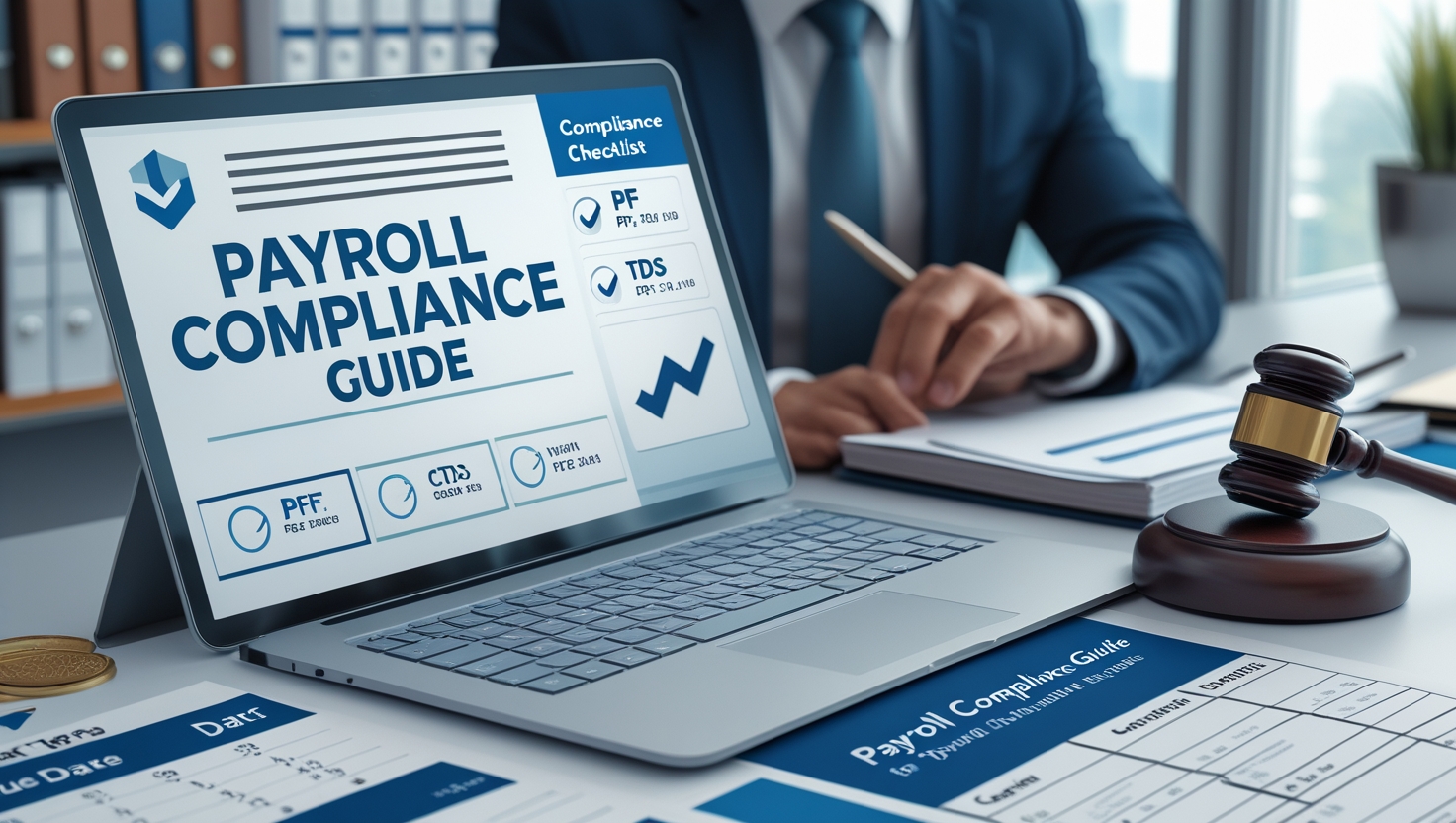Navigating Payroll Compliance: Essential Guidelines for Businesses
Payroll compliance refers to the process of adhering to all legal and regulatory requirements related to paying employees. This includes accurate tax withholdings, timely salary disbursement, proper classification of workers, and submission of relevant reports to government agencies. Businesses must ensure they are following local, state, and federal laws when managing payroll activities.
The reason this topic exists is simple: labor laws are designed to protect employees while ensuring that businesses contribute fairly to tax systems and social programs. However, the rules can be complex and frequently updated, making payroll compliance a crucial, ongoing responsibility for business owners, HR professionals, and payroll administrators.

Why Payroll Compliance Matters for Every Business
Payroll compliance is essential not only to avoid legal penalties but also to build employee trust and maintain a healthy business reputation. Here's why it matters:
Who It Affects:
-
Employers – Especially small to mid-sized businesses without dedicated payroll teams.
-
Employees – They rely on timely, accurate payment and correct tax deductions.
-
Governments – Payroll taxes contribute to national programs like social security, healthcare, and unemployment benefits.
What Problems It Solves:
-
Prevents fines, audits, and legal disputes.
-
Reduces errors in tax filings and employee compensation.
-
Ensures fairness and transparency in employee treatment.
Failing to comply with payroll regulations can result in significant consequences, including:
| Violation Type | Possible Penalty |
|---|---|
| Late tax payment | Interest, late fees, and penalties |
| Misclassification of workers | Lawsuits, back wages, and tax liabilities |
| Inaccurate reporting | Government audits and reputational damage |
Recent Updates in Payroll Compliance
Over the past year, several notable changes have shaped payroll compliance requirements:
-
Increased focus on gig and remote workers: Governments in the U.S., U.K., and India have issued clearer guidelines on classifying independent contractors. In April 2024, the U.S. Department of Labor updated its Independent Contractor Rule to better define who qualifies as an employee.
-
Digital payroll tax filing mandates: Many countries are moving toward mandatory digital filing. For example, the UK’s Making Tax Digital (MTD) initiative continues to expand in 2025.
-
Wage transparency laws: Several U.S. states, including New York and California, now require businesses to disclose salary ranges in job listings (effective from late 2023 into 2024).
-
AI-assisted payroll audits: Automation is being introduced into regulatory audits to detect discrepancies faster, especially in larger organizations.
These changes highlight the increasing importance of staying informed and adapting quickly.
Key Laws and Regulations Impacting Payroll
Different countries have unique laws governing payroll, but there are common themes worldwide. Below is an overview of some critical areas:
United States:
-
Fair Labor Standards Act (FLSA) – Sets rules on minimum wage, overtime, and recordkeeping.
-
Federal Insurance Contributions Act (FICA) – Governs Social Security and Medicare deductions.
-
IRS payroll tax regulations – Includes income tax withholding and employment tax deposits.
India:
-
Payment of Wages Act, 1936 – Regulates timely salary disbursement.
-
Employees’ Provident Funds and Miscellaneous Provisions Act, 1952 – Governs retirement benefits.
-
Income Tax Act – Covers TDS (Tax Deducted at Source) obligations for employers.
United Kingdom:
-
Pay As You Earn (PAYE) – Employers deduct tax and National Insurance from salaries.
-
Employment Rights Act 1996 – Outlines payslip requirements and holiday pay entitlements.
-
Real-Time Information (RTI) – Employers report pay data each time they pay employees.
Complying with these laws requires a clear understanding of classification (employee vs. contractor), timely tax deposits, and maintaining thorough payroll records.
Helpful Tools and Resources for Payroll Compliance
Modern technology offers a variety of tools and resources to assist businesses in maintaining payroll compliance with ease and accuracy:
Payroll Software Solutions:
-
QuickBooks Payroll – Offers automated tax filing, payslips, and direct deposit.
-
Gusto – User-friendly payroll platform for small businesses in the U.S.
-
ADP – Scalable solution used globally, with compliance tracking features.
Government Portals and Tools:
-
IRS Withholding Estimator – Helps U.S. employers calculate accurate federal tax deductions.
-
HMRC PAYE Tools – Supports U.K. employers in fulfilling PAYE responsibilities.
-
EPFO (India) – Offers employers online tools to manage PF compliance.
Compliance Checklists & Templates:
-
Payroll audit checklists
-
Contractor classification guidelines
-
Salary structure templates
-
Tax calendar reminders
Using these tools helps minimize errors, ensures deadlines are met, and simplifies the documentation process.
Frequently Asked Questions About Payroll Compliance
1. What happens if a business fails to comply with payroll laws?
Non-compliance can lead to financial penalties, government audits, and even legal action. Employers may also have to pay back wages or missed tax contributions, often with interest.
2. How often should payroll compliance be reviewed?
Ideally, compliance should be reviewed quarterly or whenever there is a major change in employment law or tax regulations. Annual audits are also recommended for thorough assessment.
3. What is the difference between an employee and a contractor in payroll terms?
Employees are on the payroll with tax and benefit deductions handled by the employer. Contractors are independent, invoice for services, and handle their own tax obligations. Misclassifying them can result in penalties.
4. Are remote workers subject to the same payroll compliance rules?
Yes, but additional complexities arise. For example, you may need to register in the worker’s location and follow that region’s tax and labor laws.
5. Can I handle payroll compliance manually without software?
While possible, manual compliance increases the risk of errors. Software helps automate calculations, filings, and reminders, reducing risk and saving time.
Final Thoughts
Payroll compliance is not just a back-office function—it’s a legal obligation and a reflection of a company’s integrity and efficiency. With increasing regulation, technological innovation, and a globally distributed workforce, businesses must stay agile and informed. By leveraging the right tools, understanding applicable laws, and staying up to date with changes, employers can ensure smooth operations and avoid compliance pitfalls.